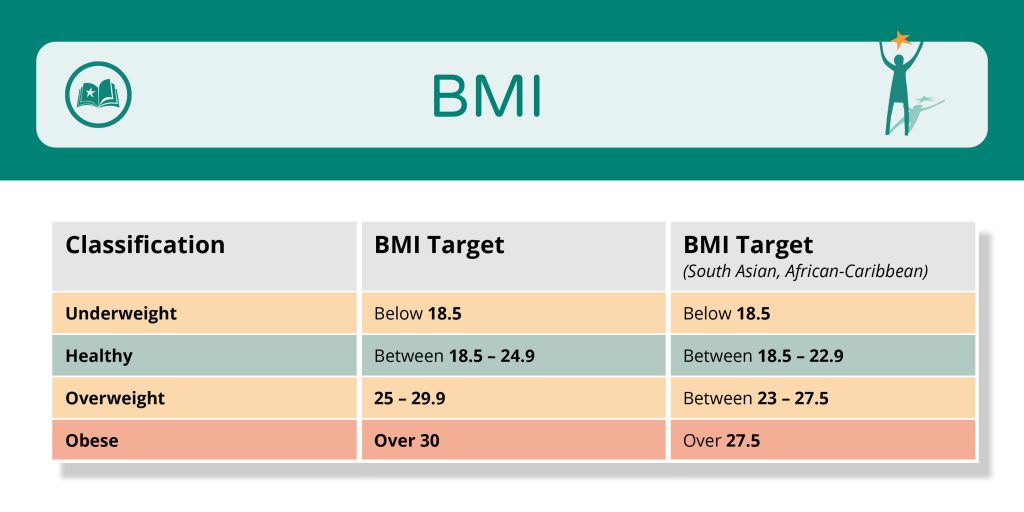Why weight matters

We’ve known for a long time that if your weight falls in the categories of overweight or obese, this makes you at higher risk of developing health conditions such as heart attacks, strokes, some cancers, breathing problems, osteoarthritis or developing type 2 diabetes.
Losing even a small amount of weight can have a significant impact on your health. We know that losing 5% of your body weight and keeping it off, can help improve your body’s insulin sensitivity and improve your blood pressure and cholesterol levels. Along with the physical benefits, losing weight can improve your mental health, increase your energy levels and help you sleep better.
Understanding my weight
It’s important to know what your weight is and what this means. To do this we use measurements such as body mass index (BMI) or waist circumference.

BMI is a measurement that calculates if your weight is in a healthy range for your height. It is not a perfect test but is often a useful guide.
The healthy BMI range for high-risk ethnic groups (e.g. South Asian, including Indians and African-Caribbean) are slightly different as indicated in the table below:

If your weight falls in the overweight or obese range, you might want to think about ways to help with weight management. This would definitely help you achieve better diabetes management. See the NHS website for more information on BMI.
Have a look at our video below to hear some practical advice on weight management:
Weight loss can be achieved by making changes to your diet and increasing your physical activity. We’re going to look at these areas further in the next couple of sections in this course.



Leave a Reply
You must be logged in to post a comment.